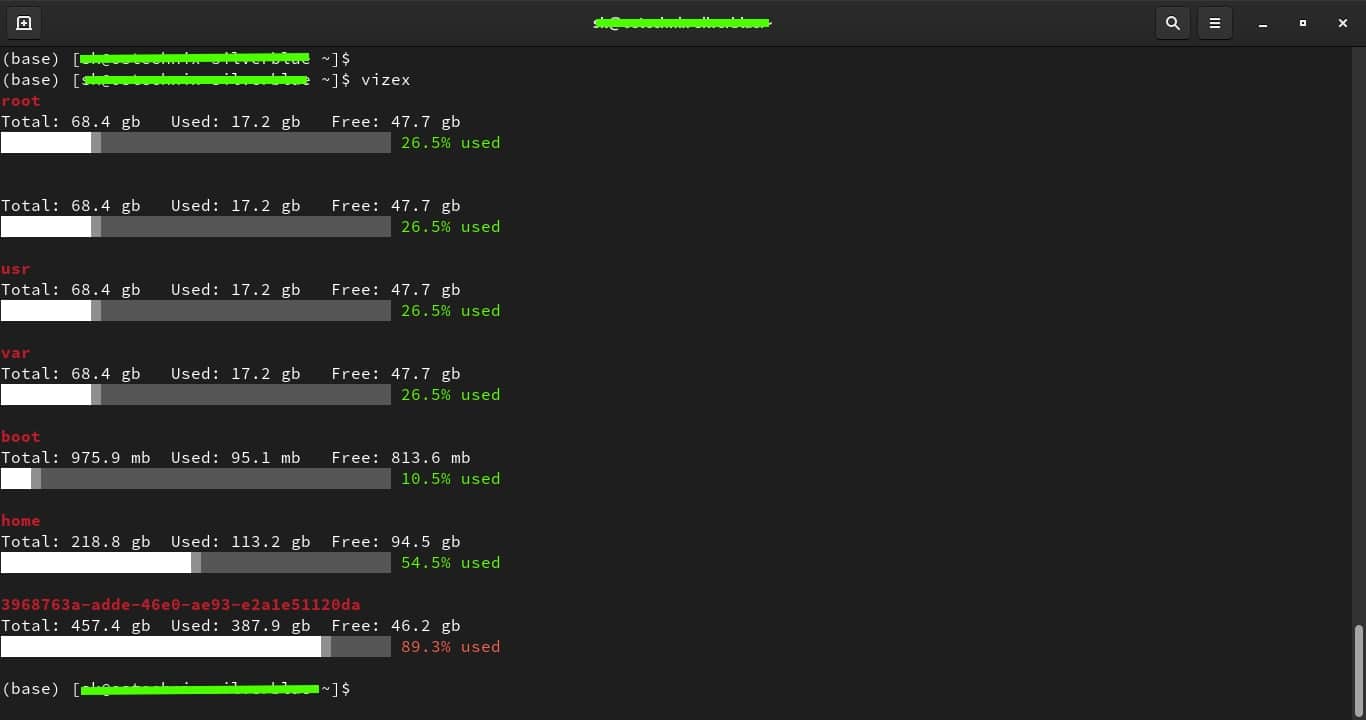
In addition to the famous Linux du tool, as well as other graphical and GUI alternatives that we have been discussing in this blog, such as ncdu, there is also another interesting terminal program for Unix and GNU / Linux systems that will help the user to visualize the disk space used for each partition or storage medium on a machine. His name is vizex.
The positive thing about vizex, in addition to being fast and effective, is that can be customized a lot, being able to make a multitude of adjustments to adapt it to your needs and preferences of each user. That is a clear advantage over others, which only allow you to view the information and little else ...
It has a function called vizexdf that allows you to organize and print directory data in the terminal. In the latest version, this feature performs directory scanning using asynchronous execution, significantly improving runtime performance by up to 400%.
Of course, vizex is open source and free. I know based on python, so you can easily install it like any other package based on this interpreted programming language. Of course, you will have to have Python (v3) installed for it to work, and you can easily install it with the pip tool (PyPackage Index) as we have described so many times in this blog.
Once installed, it works very simply. You just have to run it with the following command:
vizex
That will show you the information on the screen, with bar graphs about the space used. You can also use options that you can meet with the –help option. And, as for your other plugin, it runs with:
vizexdf
What it will show the directories, with its date, size and type. This other tool also has its options, such as –tree to display directory information as a hierarchical tree.
More information about vizex - GitHub site